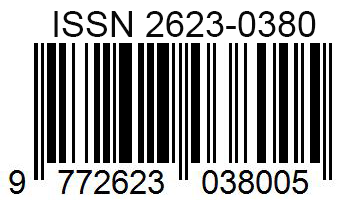Effectiveness of Using the Klipaa.id Application for Delivering Lectures to Environmental Education Students in the Era of Artificial Intelligence
Keywords:
Environmental education, Klipaa.id, Online learningAbstract
The aim of this research is to analyze the effectiveness of online and offline learning through the Klipaa.id application, as an online learning medium for Environmental Education class students at STKIP Kusuma Negara Jakarta in the Artificial Intelligent (AI) era. The method in this research is descriptive research with a qualitative approach and data collection techniques are carried out through interviews. Data validity using source triangulation. Data analysis techniques use the Miles and Huberman model, namely data collection, data reduction, data presentation, and drawing conclusions. The research results show that the use of the Klipaa.id application is very effective in terms of three indicators, namely in terms of the intensity of lecture implementation which can be utilized by students and lecturers, in terms of communication it can be seen from the use of features to receive and send lecture material neatly in the agenda feature, and in terms of fulfillment, it can be seen that students feel their information needs are met during online and offline lectures. Klipaa.id is only one media/application, there are many other media/applications that can optimize learning that takes place online and offline (blended learning).
Downloads
References
Amri, M., Najib, M. T. A., Prihamayu, A. H., & Risky, M. A. Z. (2022). Analisis Persepsi Mahasiswa FEBI IAIN Ponorogo pada Masa Transisi Perkuliahan Daring menuju Blended Learning. Edumaspul: Jurnal Pendidikan, 6(1), 533-540. http://dx.doi.org/10.33487/edumaspul.v6i1.3019
Azizah, N. (2022). Analisis Kesulitan Belajar Siswa Pada Materi Virus Dalam Pembelajaran Biologi Secara Online Di SMA Negeri 2 Mesuji OKI (Doctoral dissertation, IAIN Metro).
Carter, J. W., & Youssef-Morgan, C. (2022). Psychological capital development effectiveness of face-to-face, online, and Micro-learning interventions. Education and Information Technologies, 27(5), 6553-6575.
Harianto, B., & Karjadi, M. (2024). Kreatifitas dosen pada pembelajaran elektronika di era digital 5.0. EDUKASIA: Jurnal Pendidikan dan Pembelajaran, 5(1), 633-640. https://doi.org/10.62775/edukasia.v5i1.818
Hayati, R. S., Jariah, A., Imam, Y. K., Yoluut, M. A., & Kusmawan, I. (2023). Pendidikan Lingkungan melalui Virtual Marine Edutourism bagi Siswa Sanggar Belajar Sungai Penchala, Malaysia. Buletin KKN Pendidikan, 5(1), 84-95.
Ilmi, A. R. M., Junaidi, A., Yusnanto, T., Kase, E. B., Safar, M., & Sari, M. N. (2024). Belajar di Era Digital: Memahami Teknologi Pendidikan dan Sumber Belajar Online. Community Development Journal: Jurnal Pengabdian Masyarakat, 5(1), 782-789. https://doi.org/10.31004/cdj.v5i1.24799
Istajib, I., Nurhaidah, S. N., Hakam, M. H., & Mujiadi, M. (2024). Kontribusi Studi Islam Dalam Kajian Al-Qur'an Dan Kanonisasinya: Pendekatan Interdisipliner Untuk Memperluas Cakrawala Keilmuan. Moderation| Journal of Islamic Studies Review, 4(2), 17-36.
Jahantab, Z. (2021). Role of education in national development. Pakistan Journal of Applied Social Sciences, 12(1), 87-108. https://doi.org/10.46568/pjass.v12i1.543
Maatuk, A. M., Elberkawi, E. K., Aljawarneh, S., Rashaideh, H., & Alharbi, H. (2022). The COVID-19 pandemic and E-learning: challenges and opportunities from the perspective of students and instructors. Journal of computing in higher education, 34(1), 21-38. https://doi.org/10.1007/s12528-021-09274-2
Marbun, P. (2021). Disain pembelajaran online pada era dan pasca covid-19. CSRID (Computer Science research and its development journal), 12(2), 129-142. https://www.doi.org/10.22303/csrid.12.2.2020.
Marlin, K., Tantrisna, E., Mardikawati, B., Anggraini, R., & Susilawati, E. (2023). Manfaat dan Tantangan Penggunaan Artificial Intelligences (AI) Chat GPT Terhadap Proses Pendidikan Etika dan Kompetensi Mahasiswa Di Perguruan Tinggi. Innovative: Journal Of Social Science Research, 3(6), 5192-5201. https://j-innovative.org/index.php/Innovative/article/view/7119
Marlina, A., Khan, H. A., Cahyadi, A., Subandoyo, A., Barkah, A. S., & Megawati, M. (2023). The Role of Mosques in Managing Flood Natural Disasters through Environmental Education. In Proceeding of International Conference on Education (Vol. 2, pp. 1-9). https://doi.org/10.37640/ice.02.730
Pahleviannur, M. R., De Grave, A., Saputra, D. N., Mardianto, D., Hafrida, L., Bano, V. O., ... & Sinthania, D. (2022). Metodologi penelitian kualitatif. Pradina Pustaka.
Parinduri, S. H. (2023). Manfaat Canva untuk Melatih Kreativitas Pembuatan Mind Map Mata Kuliah Alat-Alat Ukur dan Instrumentasi. Jurnal Inovasi Pendidikan Sains Dan Terapan (INTERN), 2(2), 51-61. https://doi.org/10.58466/intern.v2i2.1171
Purwanto, E. (2023). Analisis Kesalahan Coding Pemrograman Di Microsoft Visual Basic For Applications Pada Mahasiswa Program Studi Pendidikan Matematika. ELIPS: Jurnal Pendidikan Matematika, 4(1), 93-102. https://doi.org/10.47650/elips.v4i1.693
Rafique, G. M., Mahmood, K., Warraich, N. F., & Rehman, S. U. (2021). Readiness for Online Learning during COVID-19 pandemic: A survey of Pakistani LIS students. The Journal of Academic Librarianship, 47(3), 102346. https://doi.org/10.1016/j.acalib.2021.102346
Sahlberg, P. (2021). Finnish lessons 3.0: What can the world learn from educational change in Finland?. Teachers College Press.
Sari, R. K., & Avianty, D. (2023). Pengembangan Media Ajar Berbasis Artificial Intelegence pada Mata Kuliah Evaluasi Pembelajaran Matematika. Prismatika: Jurnal Pendidikan dan Riset Matematika, 6(1), 31-42. http://dx.doi.org/10.33503/prismatika.v6i1.3501
Setyani, A. I., Putri, D. K., Pramesti, R. A., Suryani, S., & Ningrum, W. F. (2023). Pembelajaran Biologi dalam Kurikulum Merdeka di Sekolah Urban. DIAJAR: Jurnal Pendidikan dan Pembelajaran, 2(2), 145-151. https://doi.org/10.54259/diajar.v2i2.1364
Subandoyo, A. Marlina, A. (2023). Desa Fondasi Indonesia. PT. Klipaa.com.
Shavab, O. A. K. (2020). Literasi digital melalui pemanfaatan media pembelajaran edmodo pada pembelajaran sejarah. Sejarah dan Budaya: jurnal sejarah, budaya, dan pengajarannya, 14(2), 142. Permalink/DOI 10.17977/um020v14i22020p142
Yusriani, Y. (2022). Metodologi penelitian kualitatif. 77-94. https://doi.org/10.18860/preschool.v1i2.9058
Downloads
Published
Issue
Section
License
Copyright (c) 2025 Humair Ali Khan, Ani Marlina, Ani Cahyadi

This work is licensed under a Creative Commons Attribution-ShareAlike 4.0 International License.
Authors agree that this article remains permanently open access under the terms of the Creative Commons Attribution-ShareAlike 4.0 International License





















